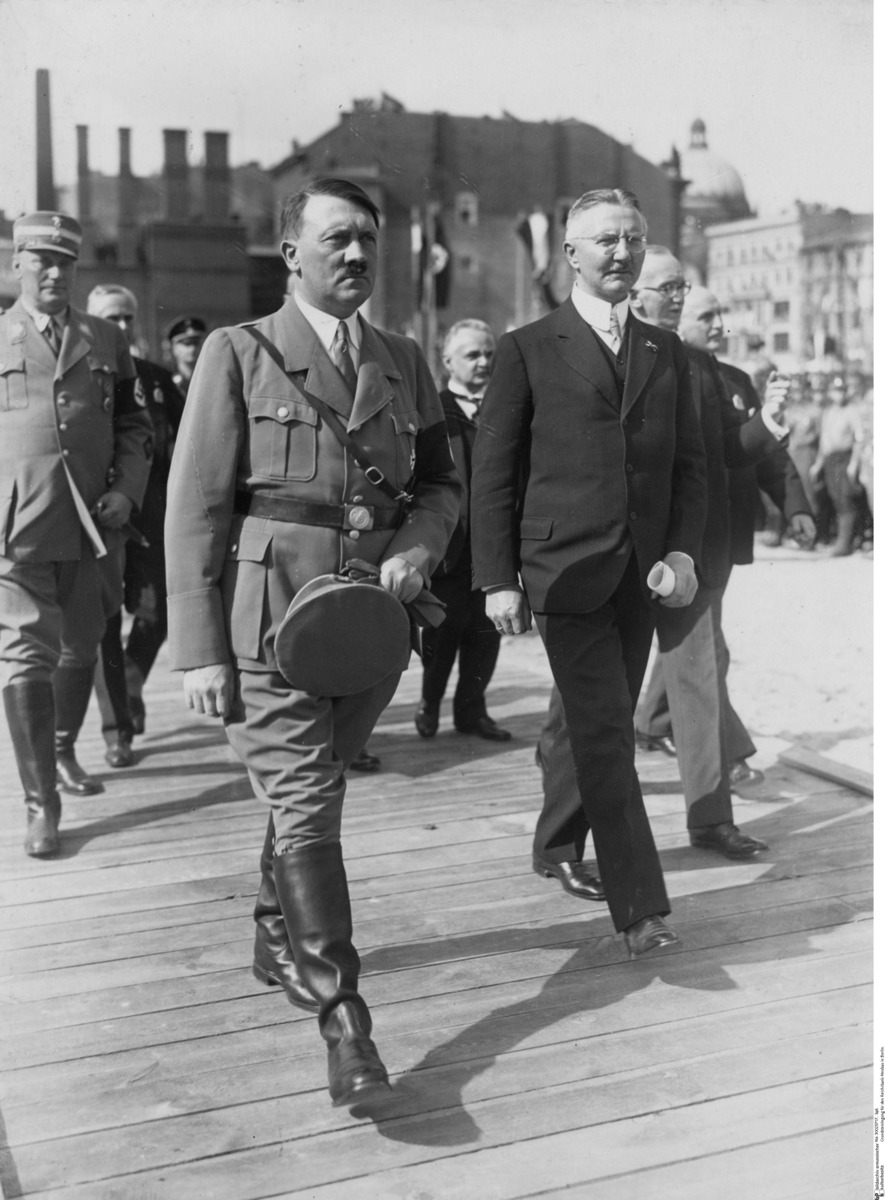Abstract
As president of the Reichsbank, Hjalmar Schacht (right) played a
major role in financing the first phase of the National Socialist
“military economy.” For example, he developed the “Mefo bill” credit
system, which allowed the state to disguise armaments spending under the
cover of the so-called Metallurgical Research Society
[Metallurgische
Forschungsgesellschaft, or Mefo for short], a spurious company set
up in April 1933. Between 1934 and 1936, Mefo bills were used to finance
about 50 percent of weapons purchases. On August 3, 1934, Schacht became
Reich Minister of Economics, a position he used to fuel the National
Socialist drive toward autarky. Under his leadership, German foreign
trade came under almost complete state control. The goal was to limit
imports to foodstuffs and raw materials needed for rearmament and to
increase the export of German manufactured goods. The steady decline of
Schacht’s political influence began in 1936, the year the Four-Year Plan
was instituted under the leadership of Hermann Göring. When Schacht
criticized Nazi rearmament and financial policy, Hitler fired him as
president of the Reichsbank. Schacht also withdrew from other public
roles, but remained Reich Minister without Portfolio until 1943. The
following year, he was taken into custody in one of the mass arrests
following the July 20, 1944, attempt on Hitler’s life. He was held at
the Ravensbrück and Flossenbürg concentration camps until the end of the
war. In 1946, the International Military Tribunal (IMT) acquitted him in
the Nuremberg Trial of the Major War Criminals, but a Stuttgart
denazification court [Spruchkammer]
judged him as a “major offender”
[Hauptschuldiger] the following year
and sentenced him to eight years of hard labor. Schacht filed a
successful appeal and was released in 1948.
